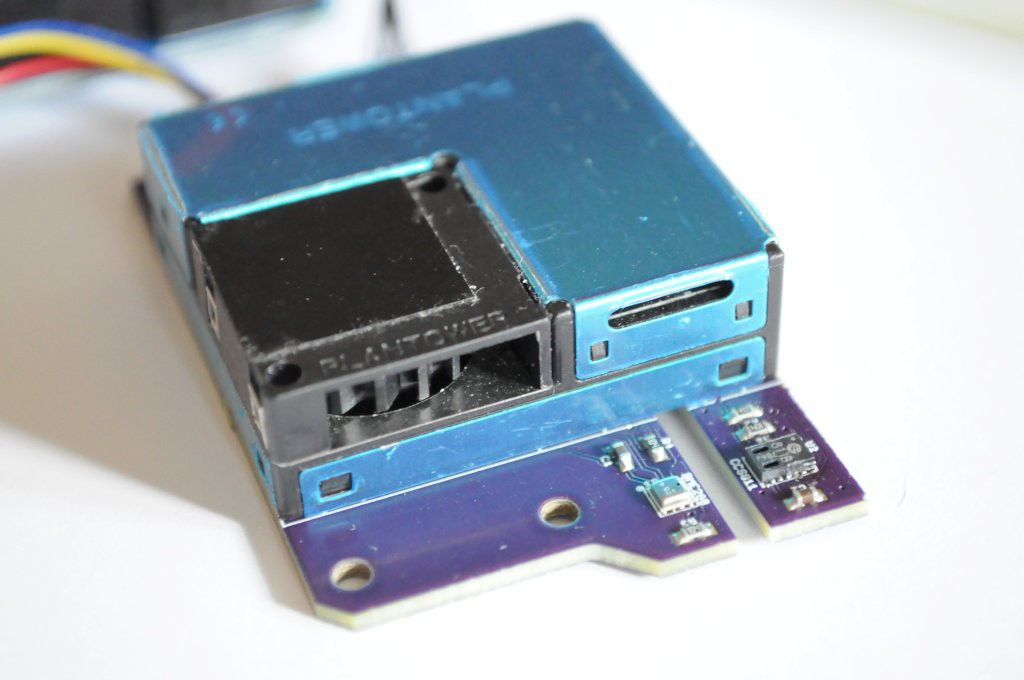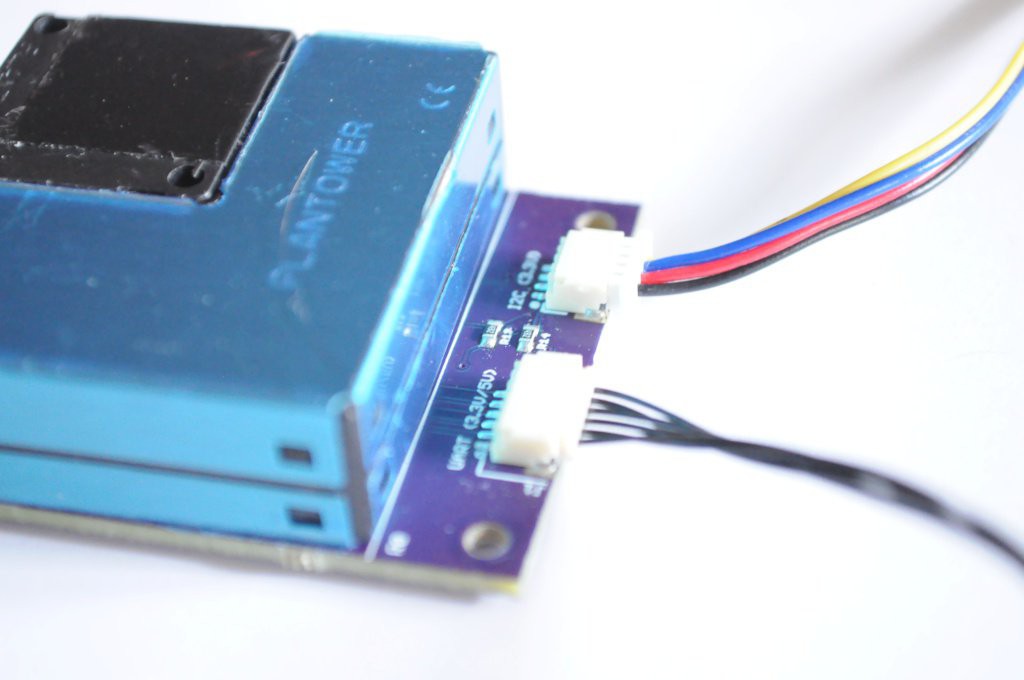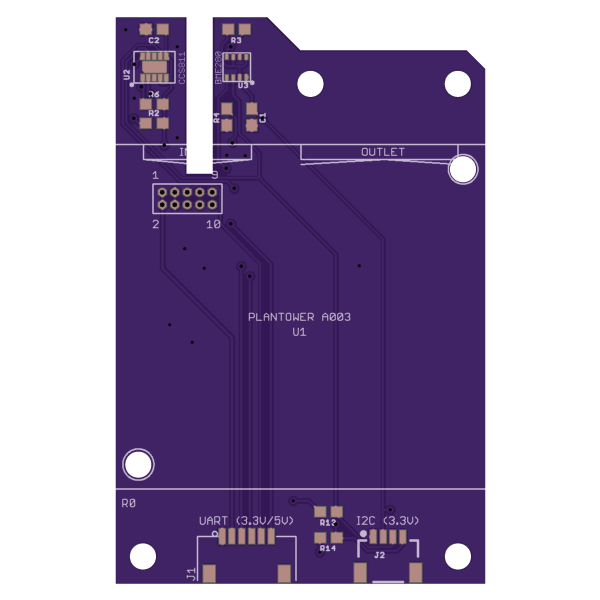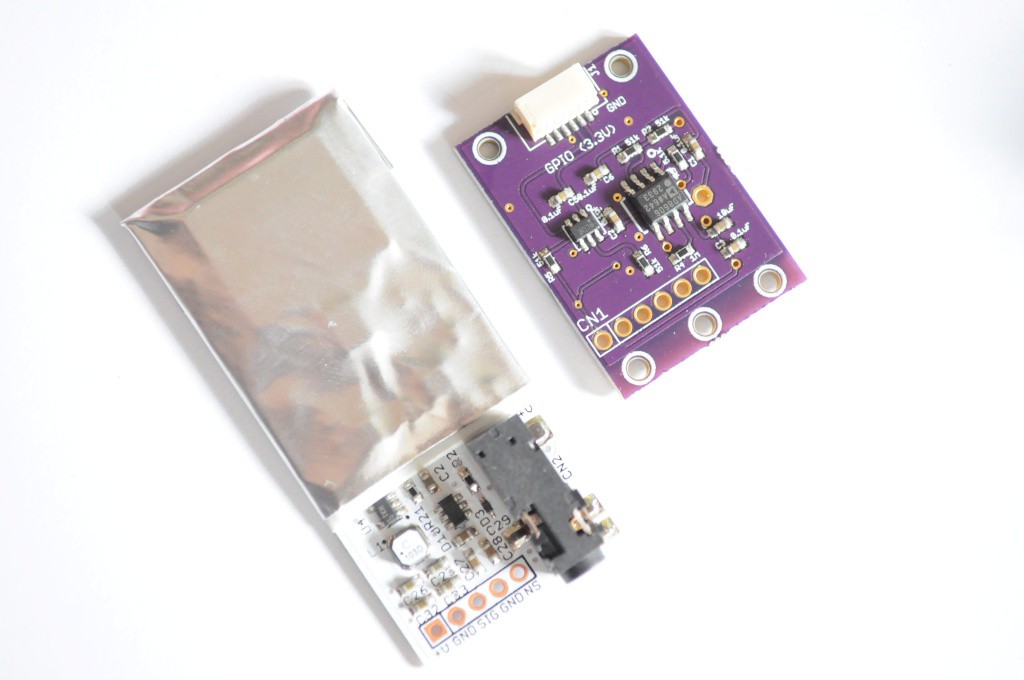A quick update, with an atmospheric sensor board, and a quick-connect version of the radiation watch backpack.

One of the things my colleagues usually joke about is that I often say we need to "make our mistakes cheaply". I say this to the students all the time, and it's a philosophy that one of my own mentors in grad school always used to impart upon us. I thought I was pretty good at making my mistakes cheaply before parenthood, but now with a wonderful 7 month old, and almost no time for anything, I've been reevaluating my approaches to getting things done quickly with the constraint of having almost no time, to try and figure out new ways of still being productive on a vastly reduced time budget.
Enter the idea of small, independently-iterable modules, and tiny JST connectors with standard pinouts on everything. Most of my hardware designs try to strike a balance between being monolithic and modular, but I really think flexibility and modularity will be the way to productively move forward. The idea here is building sensor modules that are small enough (from a design perspective) to be quick to design and test, with low-profile connectors that allow them to be placed in a small device, and easily replaced as they are iterated or improved. If the shape of the ultimate device changes, it's likely not too big an issue, since the board-to-cable connectors allow much more design flexibility than the board-to-board connectors I've typically used in the past.

The above is an atmospheric sensing board based on the Sparkfun Environmental Combo Breakout that includes a CCS811 VOC sensor, a BME280 Temperature/Pressure/Humidity sensor, and the new and very wonderful Plantower A003 air particle sensor. One of the really exciting features of the A003 is that it gives a histogram of air particle sizes, which (to a scientist like myself) is much more exciting than just a single number representing the PM1.0 or PM2.5:
Particles > 0.3um / 0.1L air:39 Particles > 0.5um / 0.1L air:6 Particles > 1.0um / 0.1L air:0 Particles > 2.5um / 0.1L air:0 Particles > 5.0um / 0.1L air:0 Particles > 50 um / 0.1L air:0
This particular board includes a cutout between the CCS811 and BME280 sensors, which helps reduce some of the difficulties with temperature measurement in this scenario -- the CCS811 is reported to warm up a fair amount, and this can throw off the readings of the BME280 if it's quite close.

Radiation Watch Type 5 Backpack
The Radiation Watch Type 5 is one of my favorite sensors, being very sensitive, compact, and having very modest requirements to get it up and running quickly. Usually when I use this sensor I add on an external comparator that allows one to tune the threshold of the output signal, and essentially increase the sensitivity of the sensor from the stock threshold of ~60KeV to something closer to the noise threshold of the circuit. For the first iteration of the OpenCT scanner I used a 10-turn pot to tune this threshold. For the Arducorder Mini, I used a static resistor, but found that it was perhaps sometimes tuned a little /too/ close to the noise floor, and on certain days would trigger almost constantly -- perhaps a function of temperature. I've since iterated different versions of the detector circuit, including some intended to do spectroscopy through peak characterization (unsuccessfully). Though I'd love to get that working one day, here, I settled on the simple version of the backpack, but with the pot/static resistor swapped out for a digital potentiometer, so that the threshold could be dynamically retuned at issue. The not-too-mechanically-stable 0.1" header from the Arducorder Mini is also exchanged here with a low-profile 6-pin JST connector, for easy use and mounting.

Slowly but surely, progress is being made. Thanks for reading!
 peter jansen
peter jansen
Discussions
Become a Hackaday.io Member
Create an account to leave a comment. Already have an account? Log In.
It was nice reading the updates, good luck with this project! Looking forward to seeing possible further progress.
Are you sure? yes | no